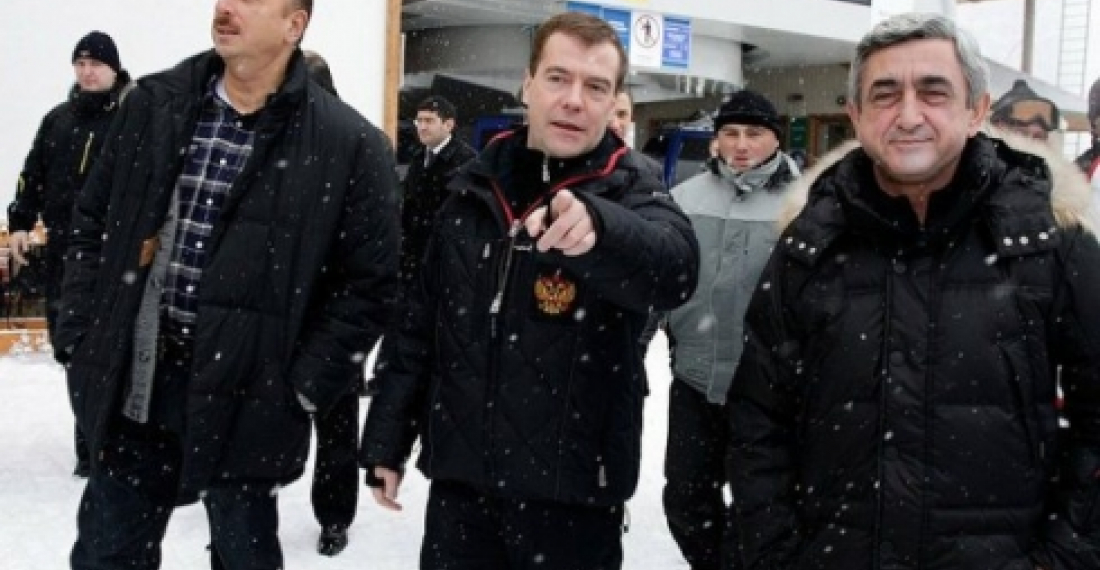Russian commentators have been expressing mixed views about the decision of President Dimitri Medvedev to convene another meeting of the Presidents of Armenia and Azerbaijan in Sochi on Monday. All comentators have expressed doubt that the meeting will deliver any tangible results. Some have even suggested that this is simply an attempt by President Medvedev to forge a role for himself after he leaves office in the Spring.
In an article in the pro government Russian daily Izvestiya on Friday (20 January) Konstantin Zatulin, Head of the CIS Institute accused Russian officials of "we know best" solutions imposed without objective analysis.
In an article entitled "The general and the particular, again" Zatulin says "The answer to the question 'Do the Russians want war?' in Nagornyy Karabakh and the Dniester region is entirely obvious, given that Moscow aims to keep both Azerbaijan and Moldova as friendly sovereign states within the CIS. Calling for regulation as soon as possible, and the restoration of a common treaty-based federative or confederative space including Moldova and the Dniester region, has long been a mantra for our policy in the region: without the Dniester region, the Moldovan asteroid will sooner or later be drawn in by the gravity of the Romanian planet. All seems in order. But it's only one step from the sublime to the ridiculous... "
"President Dmitriy Medvedev's wish for Russia to play a leading role in attempts to achieve rapid progress on Nagornyy Karabakh regulation would be entirely commendable - if this was realistic, given the differences between the two sides..." The article adds that "All around - in Nagornyy Karabakh, Abkhazia, the Dniester region, South Ossetia - we see the nature of our policy's errors and successes in the same thing: in our attitude to reality, in attempts to consider or correct it with no regard for forces, capabilities or side-effects. Among many people in the executive branch, the temptation to shape events and impose 'we know best' solutions dangerously exceeds their capacity for objective analysis, and is developing against a backdrop of withdrawal from dialogue and discussion. The only remedy for this is education and public oversight - via the parliament, if it lives up to its role, and from the height of the state's top official. If 4 March sees the election of someone who can not only reign, but also rule."
This pessimism contrrasts with the euphoria that prcededd the last meeting that president Medvedev hosted for the Presidents of Armenia and Azerbaijan, which was held in Kazan in June 2010. Prior to that meeting there was widespread belief that a breakthrough could be achieved, and it was later reported that Medvedev was very personally disappointed with the results.
In a comment, Commonspace.eu political editor said that "It is not a bad thing that the Sochi meeting is being held in a mood of realism, rather then optimistic euphoria. The role of the personalities involved in the negotiations is important, but in the end the positions are so entrenched that the role of personalities is not the determining factor. It has been evident for some time that the peace process requires a fresh approach, and one possible outcome from the meeting on Monday could be to close the chapter of the past and prepare to open a new one for the future. The fact that the sides continue talking is a positive thing and Russian diplomacy has shown patience in dealing with the sides and this is also positive."
source: commonspace.eu with Izvestiya
photo: Presidents Aliev, Medvedev and Sargsyan in Sochi in March 2011 (archive picture)







